13/10/2022
Madrid, October 13, 2022 – The European Digital Markets Act (DMA) regulation was published yesterday in the Official Journal of the EU. A period of 20 days is now open for its entry into force and up to six months for the effective implementation of its obligations, starting in April 2023.
Together with the DSA regulation, which is expected to be published before the end of the year, the Data Act and the future AI Regulation, these rules will contribute to redesigning the Digital Single Market, addressing, among other things, the existing regulatory asymmetry between some of the market players. It is no coincidence that the
level playing field
as a lever for competitiveness is one of the main values pursued by the DigitalES association.
The DMA and DSA regulations also represent two fundamental pieces of the legal foundations of the digital Europe of the future. In this sense, these two standards will play a very important role in Europe’s goal of greater technological autonomy, understood as open technological autonomy – digitalization is necessarily global – and based on European values.
The “European way” of doing business has been a success story for its industry and, as such, has benefited society as a whole. This approach is reflected in Europe’s values and its single market principles: openness and inclusiveness, fostering competition, innovation and free trade, and increasing efficiency. The concept of “open strategic autonomy” encompasses all these principles and promotes a positive vision that builds on Europe’s strategic assets and remains grounded in its values.
About the WFD: what do we mean by ‘Internet gatekeepers’?
With the WFD, the European Union aims to lead competition in the digital market and to curb potential abusive practices by Internet giants whose size transcends that of many national economies. Far from limiting innovation, Europe seeks to ensure that the development of the future digital economy is based on stronger guarantees for users – including commercial or business users – and for free competition.
“Far from limiting innovation, Europe seeks to ensure that the development of the future digital economy rests on stronger guarantees for users and for free competition.”
Many of the unknowns surrounding the applicability of the WFD lie in the definition of ‘gatekeepers’, which, although it is fairly narrowly defined in the text, there are already casuistries subject to different interpretations.
It should be noted that the Commission will review the classification of ‘keepers’ every two years. Thus, following mechanisms similar to those of the General Data Protection Regulation (GDPR), the European Commission will be responsible for carrying out the relevant market investigations and ensuring proper compliance with the law.
“The successful implementation of these laws [DSA y DMA] will be key to set the global regulatory standard,” said Irene Roche, head of unit at the European Commission, during the last congress.
DigitalES Summit
. Coincidentally, this round table was held just one day after the European Parliament approved both texts, by a large majority.
And when will the DSA be ready?
With a time lag between the approval of the two regulations of about one month, the publication of the Digital Services Act (DSA) in the EU Official Journal is expected to take place before Christmas. Its effective entry into force will be later: at the earliest, on January 1, 2014.
Unlike the DMA, the DSA introduces new supervisory figures at the national level, who will communicate directly with the large platforms.
European technological autonomy is closely linked to the long-awaited recovery and transformation of our economy, precisely at a time when there are historic funds to achieve it. “Within this historical moment, an actor emerges with renewed strength: Europe. And this new force must also play its role within a renewed [regulatorio] framework.”said Victor Calvo-Sotelo, CEO of DigitalES, during the Summit.
*Photo: Margrethe Vestager, Vice President of the European Commission, in an image from her speech at DigitalES Summit 2021.
Related posts:
> https://www.digitales.es/blog-post/opinion-por-un-europeismo-digital-consciente/
> https://www.digitales.es/blog-post/ursula-von-der-leyen-mercado-unico-digital/










